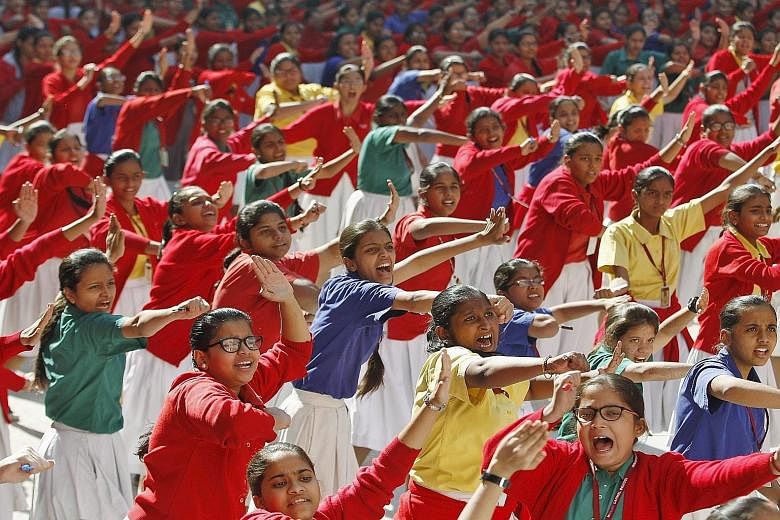A man, convicted as a juvenile for the 2012 gang rape of a physiotherapy student, is expected to walk out of a reform home tomorrow after a last ditch bid to prevent his release failed in a case that garnered national and international outrage.
The Delhi High Court yesterday refused a petition to intervene, saying there is no provision in Indian law to keep him in custody beyond Dec 20 when his three-year term in a reform home ends.
The court in its order said it was now up to the juvenile justice board to oversee his "post-release rehabilitation and social mainstreaming".
Still, the parents of the victim who on Wednesday marked her third death anniversary expressed deep anguish over the decision. "In spite of our best efforts, a criminal will be released. We were promised we will get justice but we have not got it," said the mother who was emotional.
The 20-year-old man, who was 17 at the time of the offence, was among six convicted for the gang rape of the 23-year-old college student in a moving bus on the streets of the capital in December 2012. She suffered horrendous injuries and was flown to Singapore for treatment to no avail.
Four of the other five convicted men were given the death penalty, which is currently at the appeal stage. The fifth man committed suicide during the trial.
The brutality of the gang rape led to spontaneous street protests throughout the country, pushing the then Congress government to tighten rape laws including introducing the death sentence for serial rapists.
The BJP government, which came to power last year, has initiated changes to the Juvenile Justice Act including the option of trying 16 to 18 year-olds accused of extreme crimes like rape as adults. The amendments are pending approval in Parliament.
Women and child development minister Maneka Gandhi yesterday indicated the man being released tomorrow could be kept under some sort of informal watch by the Home Ministry.
Women activists, however, were divided about the release.
Dr Ranjana Kumari, director of the New Delhi-based Centre for Social Research, said the man's "mental state should be made public to convince people he won't harm anyone", while the Delhi Commission for Women chief, Ms Swati Maliwal, said it would appeal to the President to stop the release.
Others insisted the man could not continue to be treated as a criminal.
"What is needed is rehabilitation. The idea that he will continue to be treated as a criminal as though punishment is continuing is not desirable," said Ms Kavita Krishnan, secretary of the All-India Progressive Women's Association.
The mother of the young victim in the Delhi case, who on Wednesday publicly named her daughter for the first time, said she was disheartened that women were still not safe in India.
"What has changed since my daughter died? Nothing," Ms Asha Singh told The Straits Times. "There is still no safety for women."

